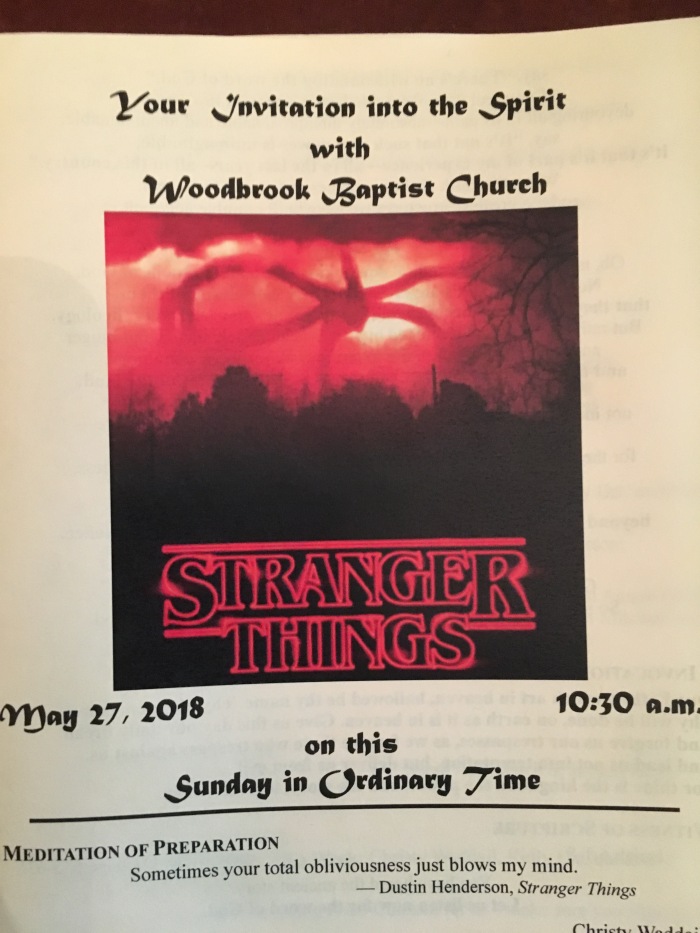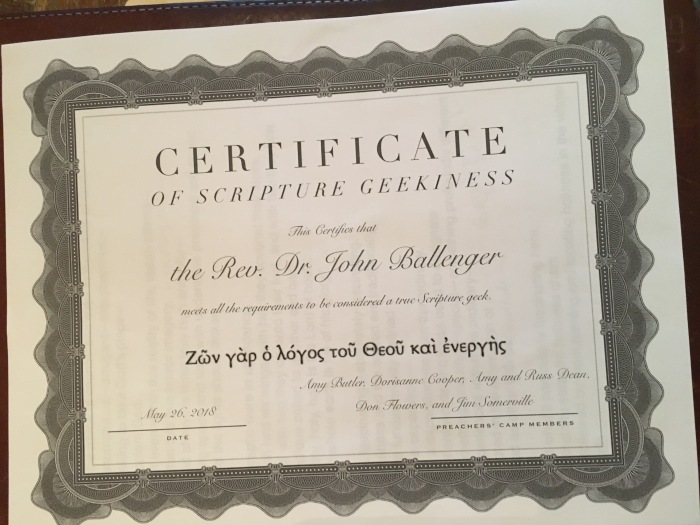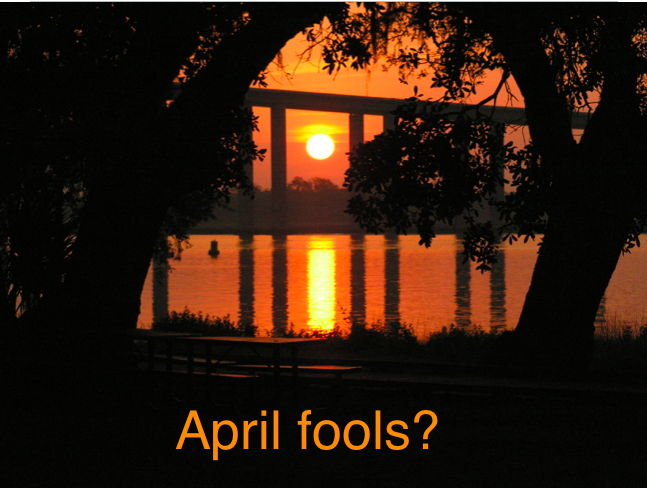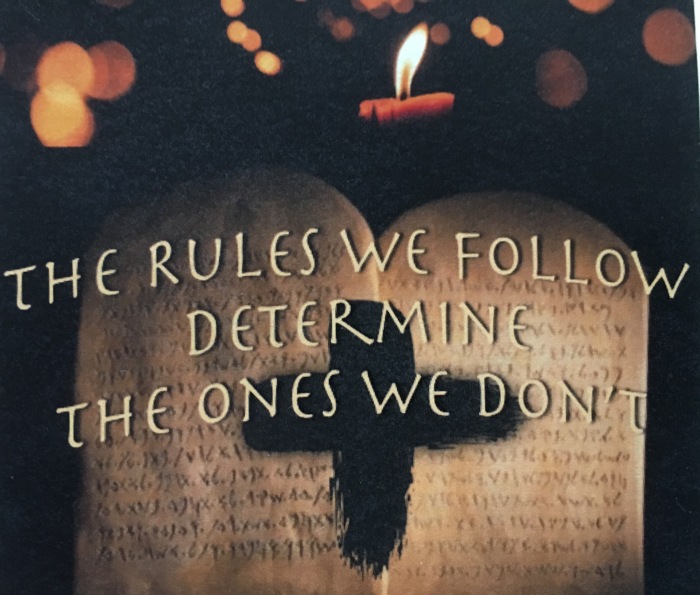
Scripture
Deuteronomy 5:12-15
Observe the sabbath day and keep it holy, as the Lord your God commanded you. For six days you shall labour and do all your work. But the seventh day is a sabbath to the Lord your God; you shall not do any work—you, or your son or your daughter, or your male or female slave, or your ox or your donkey, or any of your livestock, or the resident alien in your towns, so that your male and female slave may rest as well as you. Remember that you were a slave in the land of Egypt, and the Lord your God brought you out from there with a mighty hand and an outstretched arm; therefore the Lord your God commanded you to keep the sabbath day.
Mark 2:23-3:6
One sabbath he was going through the cornfields; and as they made their way his disciples began to pluck heads of grain. The Pharisees said to him, ‘Look, why are they doing what is not lawful on the sabbath?’ And he said to them, ‘Have you never read what David did when he and his companions were hungry and in need of food? He entered the house of God, when Abiathar was high priest, and ate the bread of the Presence, which it is not lawful for any but the priests to eat, and he gave some to his companions.’ Then he said to them, ‘The sabbath was made for humankind, and not humankind for the sabbath; so the Son of Man is lord even of the sabbath.’
Again he entered the synagogue, and a man was there who had a withered hand. They watched him to see whether he would cure him on the sabbath, so that they might accuse him. And he said to the man who had the withered hand, ‘Come forward.’ Then he said to them, ‘Is it lawful to do good or to do harm on the sabbath, to save life or to kill?’ But they were silent. He looked around at them with anger; he was grieved at their hardness of heart and said to the man, ‘Stretch out your hand.’ He stretched it out, and his hand was restored. The Pharisees went out and immediately conspired with the Herodians against him, how to destroy him.
You have heard the ancient story.
Let us listen now for the word of God.
Responsive Call to Worship (loosely based on Psalm 139)
As if you’d thoroughly explored the geography of my being,
You know me as I am.
Not the am I am when I am with someone.
Not the am I am when I’m at work.
Certainly not the am I am on social media.
Not the scared am—the anxious to please am.
No, the am that I am.
You know me well enough to know what to expect,
and yet are with me always anyway
holding on to the highest of expectations both of and for me,
and You love me.
I cannot fathom it.
I have known exhilarating highs,
and also the depths of despair,
and You have been with me through both.
I’ve known the great loneliness—
both the profound anger
and the pervasive sadness.
I’ve known the pride of accomplishment
and the frustrations of failure.
I’ve hoped,
and I’ve given up on hope,
and in and through it all,
I always came to find You there with me.
I buried myself in work.
You resurrected spontaneity.
I gave myself to the pursuit of what I could claim.
You graced me with what I couldn’t.
I was unbelievably irresponsible.
You were unbelievably patient.
I claimed the addictions that claimed me—
that suck me into oblivion.
You re-member me.
When I was but a possibility,
You prepared the way
and have known me from and through all my beginnings.
As I learned how to frame experience in story,
You told me the best ones.
As I learned how and what to hope,
You sustained that hope even through disappointment,
and as I wove dreams through my living—
my thinking and my doing,
possibilities unfolded in Your book of abundant life.
You have known me to be wonderfully made
for more than I’ve yet risked,
but as I live and move and have my being
in the vast presence of the ever More and utterly Other,
I am not overwhelmed,
and when I come to ends too,
I am still, always, with You.
Sermon
We’re in a worship series focused on the holy
and have accepted the offer of the Netflix series, Stranger Things,
to provide us some insight and structure—some direction.
We’re looking primarily, as we always do, to our Scripture
and to what’s consistent in and with our experience and our tradition.
Last week, we noted that the idea of holiness or the sacred
is traditionally fundamentally rooted in the idea of something different—
something other than—separate from the normal—
the ordinary—the mundane.
And much of such divided thinking
comes from how we think and talk about God—
as other than, but notice—
and this tells you where we’re going in the sermon today—
notice God is other than, but not separate from!
Now the most straightforward separation of holy
is from the unholy—maybe we call it evil.
In the world of Stranger Things,
Hawkins Lab operates under the auspices of the Department of Energy,
but is probably run by the CIA or the NSA—
or some other alphabetized agency.
In the early 80’s, it was the threat and the fear of the Russians
used to justify whatever “needed to be done”—
up to and including, we find out, experimenting on people—
what effect drugs have on powers of the mind,
keeping a special child imprisoned
to exploit the powers of her mind
that are evidently developed in isolation and abuse.
For in a sensory deprivation tank, this child—this girl
can extend her mind and locate people.
She can extend her mind and do things.
Now with regard to the fear of the Russians
justifying atrocities, I’ll leave it to you to decide
if it was actually fear, or fear exploited
for the sake of greed in the name of patriotism.
I’ll also just put it out there for you to consider,
how often evil is separated out into what they do.
When it was the Russians prompting lockdown drills in our schools,
that justified the defense budget.
When it’s our own culture prompting those lockdown drills,
we’re oddly paralyzed.
It’s an existential truth that becomes a spiritual truth,
it’s easier to blame them than take responsibility.
There have always been those and always will be those
(among us as among them)
who, with no thought to consequence or long-term cost,
willingly exploit others—use others
to gain privilege and power—
regardless of what it costs those others.
It’s an ends justify the means philosophy—
a philosophy of which we should know enough by now
to be deeply suspicious.
Forced into the deprivation tank to extend her mind
in order to find a Russian enemy agent,
she also encounters a fearsome creature from another dimension.
So, of course, she is sent back in to find that creature,
representing as it does to those in charge,
potential power to exploit and use.
It’s not our responsibility to take care of the children,
is nothing new for governments to say,
and when national security is at stake (or said to be at stake),
ethics are not—never have been—the highest priority.
And so, with her mind extended again,
an inter-dimensional tear in the fabric of reality
allows the creature with its ravenous hunger for blood
to enter our world,
where it takes over the bottom floor of Hawkins Lab.
There is the unholy, that reminds any with eyes that see,
in absolute contrast, what the holy is.
It is an important peculiarity of our tradition, as people of the book,
that with holiness comes responsibility—
and this as part of the Torah.
For God said, “You shall be holy
for I the Lord your God am holy” (Leviticus 19:2).
Obviously, that means we are to separate ourselves from the unholy—
which means, just to be clear, not only do we not lie,
neither do we excuse a culture of lying.
Not only do we not abuse others,
we do not ignore the abuse of others.
Not only do we not speak or act in violence,
we do not justify a culture of violence.
Not only do we not judge another by the color of their skin
or the gender of those they love,
but we do not stand by silent as others do.
I’m not suggesting any of this is easy, by the way,
but I would suggest there is a certain obviousness to it.
Now we also noted the irony last week,
that it’s precisely within the mundane and the ordinary
that we set some things apart as holy or sacred.
So we talk about holy time, while time is itself, in general,
apparently common—ordinary.
We talk about sacred space, while space itself, in general,
is apparently mundane.
And when we talk about God,
we talk about transcendence, that is immanent.
We talk about the eternal in time.
So not only does the separation of the holy from the mundane
come from how we think about God,
so does the sanctification of some of the mundane.
So there’s the separation of the holy from the unholy,
then there’s the separation
of the mundane from the sacred mundane—
the ordinary from the holy ordinary—
separating some time from other time—
some space from other space—
some experience from other experience—
some people from other people.
So do we take that to mean that we have a God-given responsibility
not only to be separate as God is separate, but also to separate?
Because if holiness is separateness,
then the faithful separate,
and one of the things we get, in consequence, are the purity laws—
as reality is divided into pure and impure—
clean and unclean.
And it’s vitally important to get it right.
And it’s vitally important to be right within such divisions of reality.
You really want to be pure and clean with what’s pure and clean.
You don’t want to be sullied in any way.
And we cannot afford to make this about Judaism.
We all have our purity laws—whatever we call them.
We all separate and divide just about every aspect of creation
and this landscape (or person) is deemed more attractive—
this substance (or person) is deemed more valuable—
more functional—
more worth cultivating—
more potentially profitable.
Pure/impure, clean/unclean, useful/not.
Then along comes Jesus—and we do need some context
for our Scripture reading this morning,
along comes Jesus, wreaking havoc with the purity laws,
and so, wreaking havoc not only
with the common understanding of God’s authority—
invested as it is in such divisions—
in respect for them and in adherence to them,
but also wreaking havoc with any sense of identity
rooted in exceptionalism.
Jesus is a threat.
And while Jesus was in Capernaum a man with an unclean spirit
entered the synagogue.
Jesus rebuked the unclean spirit and commanded it to come out.
It did. And rumors spread of a new teaching—with authority (Mark 1:21-28).
And everyone knows to beware undermining the authority of those
who’ve grown accustomed to wielding it.
Then Jesus healed Simon’s mother-in-law, who was sick,
by touching her (Mark 1:29-31).
And then he healed a leper by touching him (Mark 1:40-42).
As if there were no such people as unclean.
He not only healed a paralytic,
but forgave him his sins, and people were left saying,
“We’ve never seen anything like this before” (Mark 2:1-12)—
which is another way of saying,
“This is not normal. This is not ordinary.
This is something other.”
Which are all our definitions of what’s sacred!
Right?
I don’t know how subtle the irony is here.
And he called a tax collector to be his disciple,
and he sat at dinner with tax collectors and sinners (Mark 2:13-17).
He and his disciples did not respect the fast (Mark 2:18-22).
There is no separating here.
No one is excluded.
So of course by the time we get to our story,
the authorities are on high alert!
They’re following Jesus—
hoping to be able to expose his authority as false—
feeling the need to undermine his challenge to their authority.
And, again, we cannot afford to limit this challenge to Judaism
or to Pharisees.
Jesus clearly constitutes a challenge
to what any purity laws become.
Because there comes a time, when the intent of a law
becomes secondary, in the eyes of those tasked with enforcing it,
to obedience to that law—
which is to say there comes a time
at which those tasked with enforcing a law
cannot afford to ignore disobedience to the law,
not because of what matters most,
but because such disobedience is perceived
to undermine or threaten the authority of those enforcing the law.
An example.
The intent of a red light is to protect all those
driving through an intersection.
At 2 o’clock in the morning when you pull up to that red-light,
and you can see in the darkness the complete lack of headlights,
do you sit there for no reason until the light turns green,
or do you “break the law?”
I’m not ignoring the intent of the law.
I’m ignoring the irrelevance of the law in that circumstance.
But isn’t that a slippery slope?
Who gets to decide when laws are relevant?
What if you pull up to that red light at 4 in the afternoon,
and there’s just enough time for you to turn
into and through oncoming traffic if you don’t stop?
So am I more law abiding at 4 in the afternoon
than I am at 2 in the morning
(not that I’m out very much at 2 in the morning,
but neither is anyone else—that’s the point, right?).
Or am I legitimately more invested in the intent—
dare I say the spirit of the law
over the letter of it?
And would the police officer care?
Not a bit.
And you can argue the law has become more important
than the circumstances that created the law.
Rabbi Abraham Joshua Heschel wrote,
“The ancient rabbis knew that excessive piety
may endanger the fulfillment of the essence of the law”
(Abraham Joshua Heschel, The Sabbath:
Its Meaning for Modern Man [New York: The Noonday Press,1951] 17).
And that’s how I’d thought about it until this past week!
But this is not just Jesus clearly challenging the purity laws.
For as we saw last week,
there is a way of coming at this completely differently.
When the glory of God fills the whole earth,
you’re not separating!
And if holiness is wholeness,
then there ought be no separating.
And this is in no way to deny or even minimize God’s otherness,
but rather to not let God’s otherness
undermine God’s revelation and presence—
or we risk a spirituality that cares more about transcendence
than immanence,
even when God is only known to us
in and through the immanent.
You see?
We risk a spirituality that values the eternal
at the expense of time,
which is the only measure within which we know God—
within which God is present and active.
So what if we were to think of God,
not denying the utter otherness of God,
but imagining God saying,
“You know, as much as we apparently don’t belong together,
yet we do.
In truth, our stories are not complete without the other in them.”
And imagine that’s true for God as well as for each of us.
Because how else could it be that God loves us?
Isn’t that what love means?
My story is incomplete without you in it.
So consider this morning, the tremendous difference
between saying, “Some time is holy,”
and saying, “Any time can be holy”—
between saying, “Some space is sacred,”
and saying, “Any space can be sacred.”
And so when we read the law—
read Leviticus 19:2, “You shall be holy
for I the Lord your God am holy,”
we stop thinking in terms of separate,
and we start thinking in terms of consistency
because that command is less about separation
than it is about consistency.
We are to be consistent in our being
with who and how God is in God’s being.
So we are to be loving, for God is loving.
We are to love justice, for God loves justice.
We are to extend grace, for God extends grace.
We are to embrace the least of these among us, for God does.
And we are to celebrate creation for its own sake, not just ours.
You shall be part of the whole, for I am the whole.
So when we read our two gospel stories about keeping the sabbath,
keeping it as holy—honoring the sabbath as separate—
a day set aside from the others
(For six days you shall labour and do all your work.
But the seventh day is a sabbath to the Lord your God),
we might do well to think of it
less as one day set apart from six,
as one on which to remember the six separate us from the whole.
We are given a day on which to remember that for six days,
we get focused on our work—
on what we have to do to survive,
and we forget
God desires more than our survival.
The sabbath is not for not doing work,
but for remembering, that more than work
God requires of us righteousness and justice and humility.
I’ve noticed something—picked up on it this past week.
I was reading Fredrik Backman—the Swedish novelist’s book,
my grandmother asked me to tell you she’s sorry,
and found myself tearing up at some scenes—
my breath catching.
And that made me remember how I felt,
two weeks ago now, at that Reclaiming Jesus service in DC—
with Michael Curry and Sharon Watkins and Walter Brueggemann—
so proud—of what our faith can be—what it can represent—
when it’s not afraid—
when it doesn’t ignore who Jesus was
in favor of what’s been established in Jesus’ name.
It’s how I felt reading something
George Mason posted on Facebook this past Thursday.
George is the pastor of Wilshire Baptist Church in Dallas.
They’ve recently gone through the process of becoming welcoming and affirming,
but this post, in light of current events in Southern Baptist life,
was on the rot that festers in a theology
that excludes women from leadership in the church—
a rot in the theology that rots the way men behave—
that generates a rotten way of treating women—
behaving toward women.
And amidst our tradition so often getting it so wrong,
it felt like George got it right.
And I felt so proud of what our faith can be—
what it can represent—when it’s not afraid.
And then I realized all these moments had something in common.
The novel, the worship, the Facebook post—
each addressed someone—or someones—who had felt left out—
who had been excluded and were welcomed in.
Not just acknowledged, but appreciated—celebrated.
Because there’s holiness in wholeness.
Not because some get it right and get to tell everyone else,
but because God made it all,
and God blessed it all—
in all its hues and interests and shapes and sizes
and smells and sounds.
leanings, interests, all its different perspectives and experiences
In Backman’s novel, Elsa is a seven-year-old who’s different.
And so life is both wondrous and hard,
as she’s bullied at school—as different children often are.
But there is this one passage in the book
when she goes back to school,
all prepared to run and fight and hide,
but instead she meets another girl who’s different, Alex.
“They become best friends immediately, as you only can when you’ve just turned
eight, and they never have to run away again…. A few days go by. Maybe a few
weeks. But after that, one by one, other different children start tagging along with Alex and Elsa in the playground and the corridors. Until there are so many of them that no one dares to chase them anymore. Until they’re an army in themselves. Because if a sufficient number of people are different, no one has to be normal” (Fredrik Backman, my grandmother asked me to tell you she’s sorry [New York: Washington Square Press, 2013] 369).
We mentioned last week, how on Stranger Things,
middle schooler Will Byers disappears in the first episode.
But as Will disappears, another child appears.
We will come to know her as Eleven—El for short.
She’s known by the number tattooed on her wrist.
Somewhat ironic that in the story, it’s our own government
tattooing numbers on peoples’ wrists.
She escaped from Hawkins Lab.
And she has powers—amazing powers.
She’s a Jesus figure, of sorts—in that sense—
a miracle worker.
But as Jesus figures tend to be,
she’s also different from Jesus.
For one thing, while she has great power,
all she’s known is isolated—torture.
It’s the reverse of Jesus, really—
suffering not willingly accepted as consequence,
but imposed by another as means to their ends.
She is thus a tragic figure,
and Jesus was never a tragic figure.
And so instead of creating community,
she is welcomed into community.
And it’s Mike who welcomes El—
into his life—into his home—even into his friend group.
It’s Mike who makes a promise to El
to protect her.
So while she has those incredible powers,
who’s the real Jesus figure?
The one who’s different from us in what she can do?
Or the one who’s the best of who any of us can be?
I wonder what it would be like
if instead of blaming others for what’s unholy
and looking to God for what’s holy,
we looked to ourselves—
if instead of thinking in terms of separating out the holy
in order to reject, we focused on what to affirm—
instead of thinking some time is holy,
we lived as if all time were—
instead of thinking some space is holy,
we acted as if all space were—
instead of thinking some people were holy,
we treated each other as if all people were.
I wonder what it would be like
if we stopped dreaming of miracles we can’t do,
and started dreaming of all the miracles we can do
when we stop separating
and start including—
start blessing—
start loving.
Don’t you want to find out?




